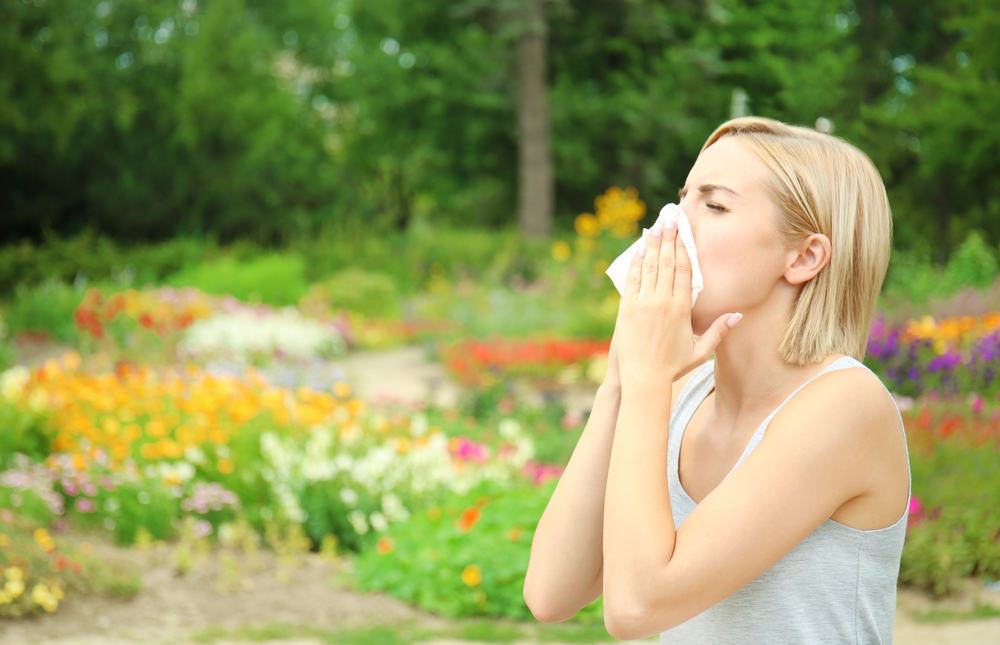Common Causes of Spring Allergies

For many people, spring is the allergy season. While others are enjoying the warm weather and beautiful blooms, allergy sufferers are struggling through that sneezy, itchy, awful feeling. Also known as hay fever, spring allergies are extremely common and typically harmless–but that doesn’t help you battle through the peak of allergy season.
Avoidance is the best way to combat spring allergies, but that means knowing what to avoid. Spring allergy symptoms can be caused by a variety of culprits that come with the season. Since you can’t stay indoors until summer (and you may even have summer allergies), let’s take a look at some of the most common causes of your spring allergy symptoms.
Common Causes of Spring Allergies
Tree Pollen. Trees are the first plants to pollinate each year, with pollen levels peaking in March and April (or even mid-February, if you live in south Alabama). Some trees, like our local pines, produce pollen you can see as a fine yellow powder that sticks to outdoor surfaces. These small, light-weight grains are easily blown in the wind–and right into your eyes, nose, and mouth.
Grass Pollen. Grass pollen typically peaks in mid-spring and can cause the worst of your allergy symptoms. Millions of people have a grass pollen allergy, especially to species like Bermuda, Fescue, and Rye. Because grass pollen can travel hundreds of miles on a breeze, you may be exposed to grasses that aren’t even in your location!
Mold. It’s not as common as pollen, but mold can still cause some miserable symptoms. During spring, moisture-rich air and warming temperatures create a perfect storm for mold spores. They can be found inside your home or outdoors in damp, dark places like compost piles, fallen leaves, bathrooms, and basements.
Insect Bites. Insects aren’t technically seasonal, but they do see a surge during springtime. Insect allergies can be extremely severe, even causing anaphylaxis (trouble breathing) and shock. Unlike other allergens, minor reactions usually occur on the skin as pain, swelling, redness, and itching. Bees, wasps, and fire ants are common spring stingers here on the Gulf Coast.
Let Urgent Care of Fairhope Address Your Allergy Needs
There are a few ways to combat springtime allergies. But when DIY leaves you drowning in sniffles and sneezes, Urgent Care of Fairhope is here to help. Stop by our convenient walk-in clinic to receive fast and friendly care that puts you on the road to relief. You can even check the waitlist online before you arrive!
Search our Blog
Recent Posts
Spray Sunscreen: Convenient Choice or Risky Business?
We all know sunscreen is a must-have, especially during those sunny summer months here on the Gulf Coast. But with so many options on the shelves (locations and sticks and sprays, oh my!), choosing the [...]
8 Unusual Signs of Dehydration
Summer is just beginning here on the Eastern Shore, and the heat and humidity values are already nearing triple digits. With peak season still around the corner, it’s important to start defending yourself against health [...]
9 Superfoods That Keep You Cool in Hot Weather
Summer on the Eastern Shore mean can mean sweltering heat and humidity, making it essential to find ways to stay cool. While an ice cream cone or a cold beer might seem like the perfect [...]
STEM Summer Camps for Kids: Health Benefits and Local Resources
Summer is a time for fun, adventure and discovery, and what better way to engage your child’s curiosity than through a STEM (Science, Technology, Engineering, and Mathematics) summer camp? At Urgent Care of Fairhope, [...]
Senior Health: The Power of Socialization
Seniors are a cherished part of southern culture, especially here in South Alabama. Modern medicine knows more about senior health than ever before, particularly when it comes to overall wellness. Staying healthy through your golden [...]
Common Skin Cancers: Signs and Safety Tips
Summer is on its way to the Eastern Shore. As we bask in the summer sun and celebrate beach season, it's important to remember that May is also Skin Cancer Awareness Month - an important [...]

